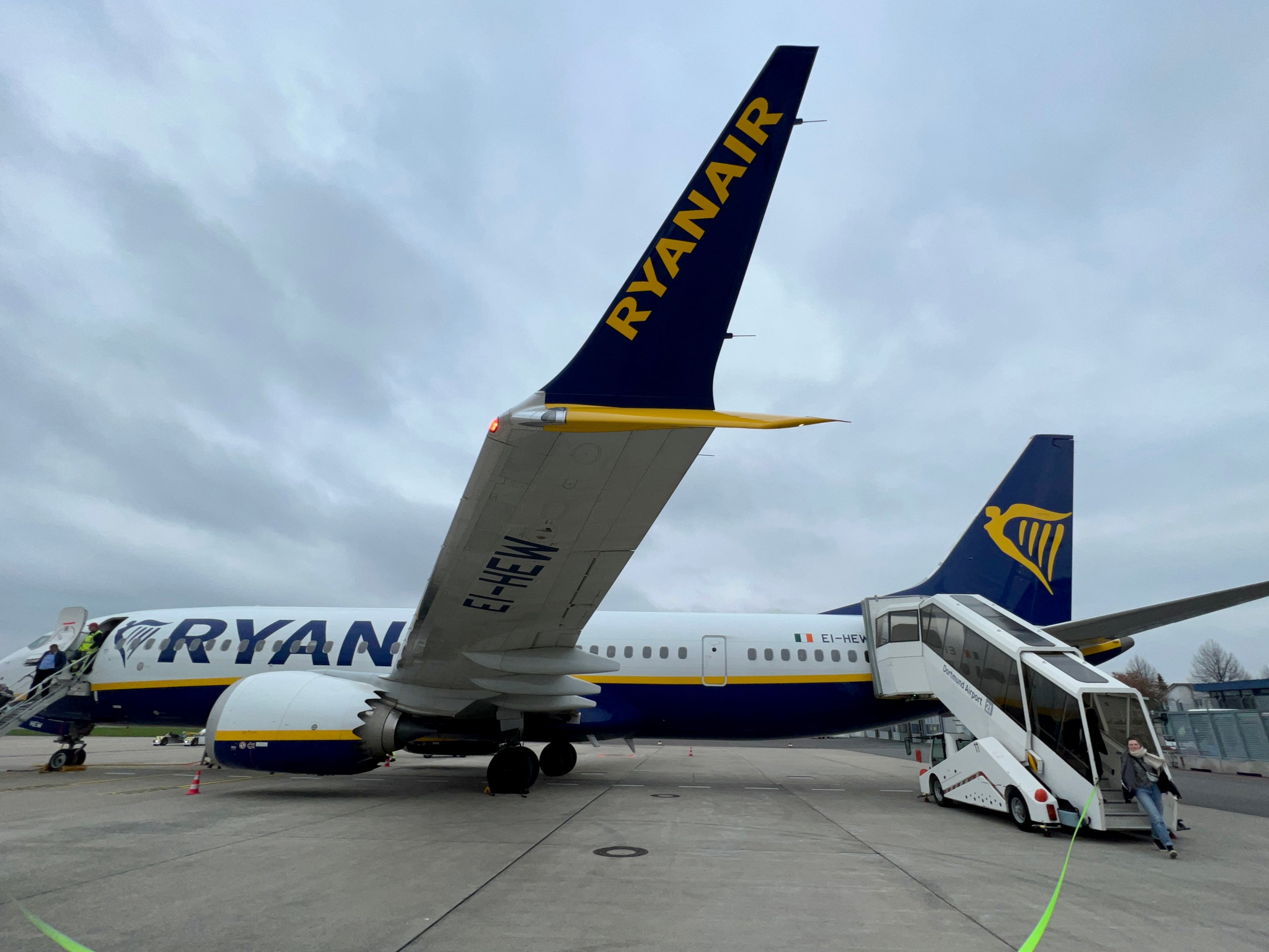Luton airport: birthplace of legends, and environmental miracles?
The Man Who Pays His Way: Now the budget airlines are launching ‘green wars’

Your support helps us to tell the story
From reproductive rights to climate change to Big Tech, The Independent is on the ground when the story is developing. Whether it's investigating the financials of Elon Musk's pro-Trump PAC or producing our latest documentary, 'The A Word', which shines a light on the American women fighting for reproductive rights, we know how important it is to parse out the facts from the messaging.
At such a critical moment in US history, we need reporters on the ground. Your donation allows us to keep sending journalists to speak to both sides of the story.
The Independent is trusted by Americans across the entire political spectrum. And unlike many other quality news outlets, we choose not to lock Americans out of our reporting and analysis with paywalls. We believe quality journalism should be available to everyone, paid for by those who can afford it.
Your support makes all the difference.Simon Calder, also known as The Man Who Pays His Way, has been writing about travel for The Independent since 1994. In his weekly opinion column, he explores a key travel issue – and what it means for you.
Luton: birthplace of legends. I am not thinking here about singer Paul Young or broadcaster Stacey Dooley, but of Europe’s two biggest budget airlines. Luton airport was chosen by young entrepreneur Stelios Haji-Ioannou as the base for a new carrier, easyJet, in 1995. And nine years earlier than that, the Bedfordshire airport was the first destination from Dublin for an Irish start-up called Ryanair.
Since those early days, easyJet has made Gatwick its biggest base, and Ryanair has moved east to Stansted. But both airlines maintain a significant presence at Luton alongside a relative newcomer, Wizz Air.
On Thursday this week I went along to the airport to meet the chief executive of Ryanair DAC, Eddie Wilson. Normally such events are held to promote new routes; this time, the story was new planes. Wilson is deploying three of his Boeing 737 Max jets to the Beds base, and thereby “reducing noise emissions by 40 per cent and fuel consumption by 16 per cent while delivering 4 per cent more capacity per aircraft”.
That last point – 4 per cent more capacity – intrigued me. The fuselage is exactly the same size as the previous version, yet eight more seats have been fitted in. On board there is no sense of a squeeze, which I conclude is down to the use of slimmer seats.
What intrigued me more is the way that budget airlines are now slogging it out over their concern for the environment.
“Sustainable growth” is the new Ryanair way. “We’re the only airline of scale that is growing, that can materially move the dial in terms of capacity over the next number of years,” the CEO told me.
Wizz Air, meanwhile, announced this week that it is investing £5m in a company called Firefly Green Fuels, which plans to produce sustainable aviation fuel (SAF) from sewage sludge. The Firefly chief executive, James Hygate, says the raw material “is available in vast quantities globally”. (The conversion ratio, I calculate, is 228 tonnes of the unwanted waste to one tonne of SAF.)
Five years from now, the airline plans to be in a position to reduce its annual emissions by the equivalent of 12,000 round trips between Luton and its European HQ in Budapest.
Across at the big orange shed housing easyJet’s Luton headquarters, the emphasis is on hydrogen. The aim is to have an “easyJet-sized aircraft” – carrying around 200 passengers – by 2035. The most promising option, the carrier believes, lies in working with Rolls-Royce to pioneer the development of hydrogen combustion engine technology. While we’re waiting for that to happen, passengers who take their own reusable cup on board will save 50p on a hot drink.
Which, a cynic might say, is the kind of tokenism that shows how out of reach are tangible reductions in emissions. But Jonathan Rayner, chief commercial officer at Luton airport, says: “As well as our commitment to achieve net zero carbon for our own airport emissions by 2040, we are working closely with our airlines to reduce their emissions.”
Also on Thursday, Jet2 announced its investment in a new sustainable aviation fuel production plant to be constructed in Cheshire.
“Production of SAF is expected to commence at the plant in 2027,” says the Leeds-based airline. “When at full capacity, 600,000 tonnes of non-recyclable household waste, which would otherwise have been destined for incineration or landfill, will be converted into around 100 million litres of SAF annually.”
After years of fares wars, it is refreshing to see budget airlines indulging in “green wars”. I shall be watching, and waiting. But the last word on sustainable aviation fuels goes to my colleague, Helen Coffey, who travels flight-free. “SAFs have a part to play when it comes to lowering aviation emissions – but a relatively small part, rather than the starring role they are currently being cast in by the industry and politicians alike.”
Join our commenting forum
Join thought-provoking conversations, follow other Independent readers and see their replies
Comments